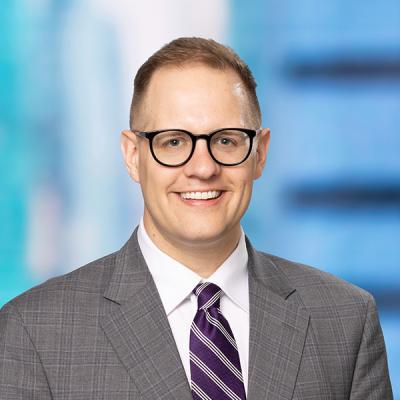New York’s Department of Health Provides Guidance on Face Coverings for Essential Workers
On April 12, 2020, Governor Cuomo issued Executive Order 202.16 mandating that essential businesses in New York require their employees to wear face coverings when in direct contact with customers or members of the public. The New York State Department of Health has now issued guidance regarding the order, which went into effect April 15th. We highlight the provisions of the order and the DOH guidance below:
Key Provisions of the Executive Order:
- The order mandates that all essential businesses or entities provide workers present in the workplace with face coverings (e.g. masks) that workers shall wear when in direct contact with customers or members of the public.
- The face coverings must be provided at the employer’s expense, without any costs passed along to workers.
- The order provides that employer compliance failures may result in civil fines and even potential criminal liability for willful disobedience.
- Essential businesses need not provide customers or clients in their workplaces with face coverings at their expense. However, a separate executive order, 202.17, requires almost all members of the general public to wear a face covering when in public and unable to practice effective social distancing.
- The order will be in effect until revoked by the Governor.
- Remember, the guidance interpreting New York’s essential business order also exempts from in-person workplace restrictions any vendors, suppliers, or other workers who provide support to an essential business that is required for the essential business’s operation. Thus, non-essential employers that have employees who are supporting essential businesses (and that interface with customers or the public) should also consider providing these workers with face coverings.
DOH Guidance for Employers:
New York State’s Department of Health has issued instructive guidance to employers seeking to comply with this new mandate and has provided the following helpful information:
- Direct Interaction: Employers may interpret the term “direct interaction” to align with their businesses, but “direct interaction” must at least include any employee who is routinely within close contact (i.e., six feet or less) with members of the public, including customers or clients.
- Contractors: Employers are obligated to provide face coverings to any worker in the workplace, including any non-employee contractors.
- Face Coverings: DOH informed employers that coverings include, but are not limited to, cloth masks (e.g., homemade sewn, quick cut, bandanas), surgical masks, N95 respirators, and face shields. Employers can reference the CDC’s website for information on cloth face covers and other types of personal protective equipment (“PPE”), as well as for instructions on the use and cleaning of face coverings. Although not covered in the DOH guidance, the CDC has advised that cloth face coverings should be used outside of healthcare settings, as medical-grade facemasks are in short supply and should be reserved for healthcare workers and first responders.
- Employees’ Own Masks: Employees are allowed to use their own face coverings, but employers cannot mandate that they do so. If employers provide employees with cloth face coverings, employees have the option to wear their own more protective coverings, such as N95 respirators.
- Health-Related Exemption: DOH clarifies that employees are not required to wear face coverings where doing so would “inhibit or otherwise impair the employee’s health.” If an employee asserts that wearing a face covering would inhibit his or her own health, employers are not allowed to request any sort of health-related documentation from the employee. However, although not covered by the guidance, because the refusal to wear a face covering may put others at risk, employers in these situations should work with the employee to find alternative solutions, including identifying and utilizing any other forms of PPE that may not impair the employee’s health. If other forms of PPE are not available, employers should look for accommodations, such as the ones set forth in the reasonable accommodation bullet below.
- Reasonable Accommodations: In its guidance, DOH suggests that employers consider allowing reasonable accommodations for population groups more susceptible to COVID (e.g., workers over 70 years old and immunocompromised individuals), such as different PPE, alternate work locations, or alternate work assignments with fewer interactions with the public so that the employee may continue to deliver essential services in a safe manner.
- Procuring Face Coverings: If an employer is unable to “procure, fashion, or otherwise obtain” face coverings for their employees, DOH advises the employer to reach out to their jurisdiction’s emergency management office to request extra supplies (if the jurisdiction has availability). However, given widespread reports of municipalities’ and states’ limited PPE resources, employers are advised to use basic cloth materials wherever possible. DOH maintains that the inability to procure face coverings does not relieve an employer of its obligations under the order.

Part One of the COVID-19 Roadmap Series: Introduction
April 22, 2020| Blog

CDC Relaxes Self-Isolation Guidelines for Critical Infrastructure Workers
April 20, 2020| Blog
Authors
Michael S. Arnold
Member / Chair, Employment Practice
Michael Arnold is Chair of the firm's Employment Practice. He is an employment lawyer who deftly handles a wide array of matters.
Corbin Carter
Associate
Corbin Carter is a solution-oriented employment counselor and litigator who guides clients through all aspects of the employment lifecycle. Corbin’s practice covers everything from day-to-day counseling to leading investigations and the management-side defense and prosecution of various employment-related claims.


